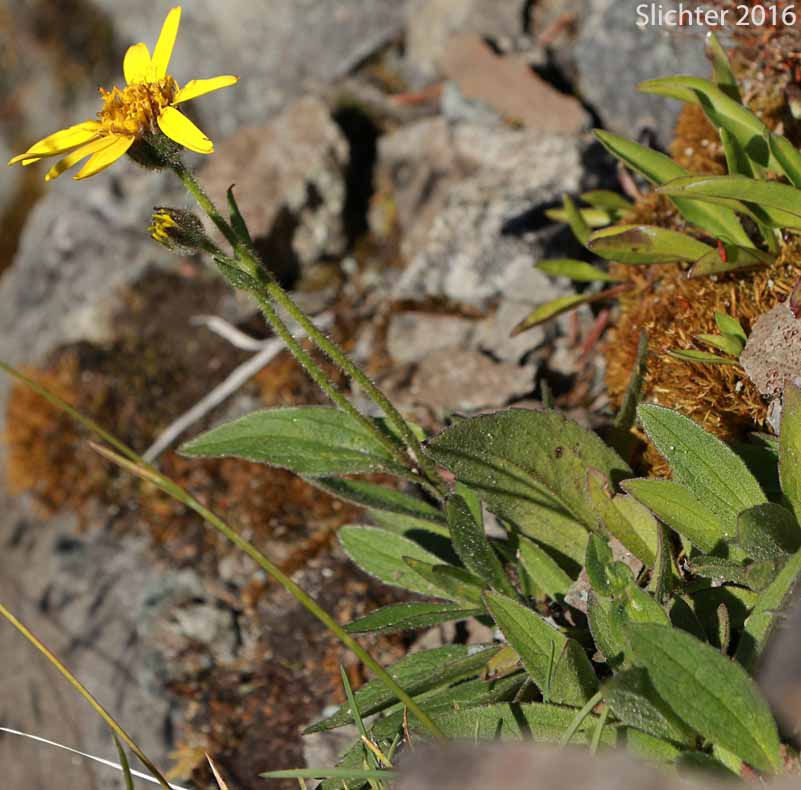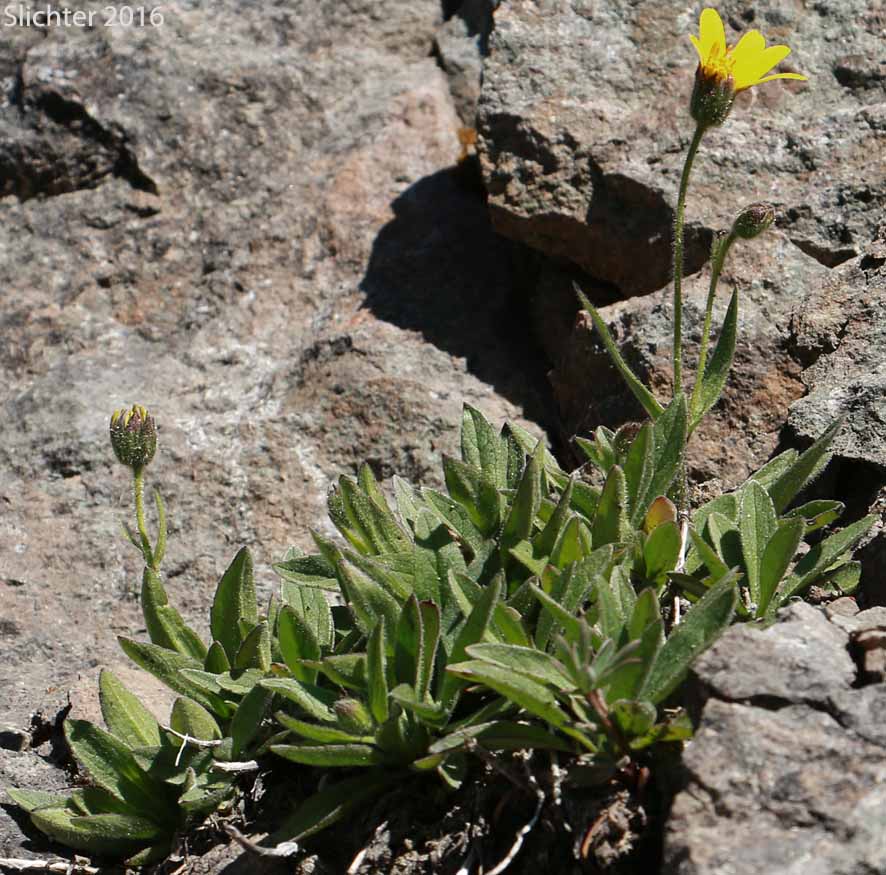 -
- 
Rydberg's Arnica is a perennial wildflower with one to several erect stems arising from 15-30 cm high from scaly, often branching rootstocks or rhizomes. The stems are nearly glabrous near the base but plants become finely to sparsely covered with curved hairs. The leaves are distinctly 3-5 nerved with margins varying from entire to lightly to sharply toothed. The leaves are largely basal or found on the lower stems with the lowermost leaves with long petioles while the 3-5 pairs of stem leaves become sessile. The lower leaves are roughly oblanceolate in shape while the upper become broadly lanceolate in outline. The blades are almost glabrous below and sparsely haired above with ciliate margins and the lower blades vary from 3-10 cm long and 5-25 mm wide.
The 1-3 flower heads are long-peduncled. The involucres are 9-13 mm high with lanceolate bracts with acute to obtuse tips, and range from sparely long-haired to glandular. The deep yellow rays usually number about 8 and vary from 1-2 cm long with entire to mintuely toothed tips..
Rydberg's Arnica may be found in vernally moist meadows and open slopes, generally at higher elevations in the mountains.
Rydber's Arnica is generally found along the eastern Cascade Mts. from British Columbia south to northern California and east to Alberta, eastern Oregon, nothern Utah and Colorado.
In the Columbia River Gorge, it has been recorded at an elevation of 4200' roughly on a line between Larch Mt. and Three Corner Rock, but we have not determined the actual location of this point.